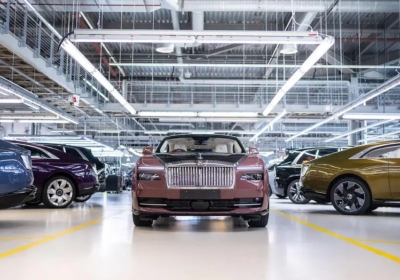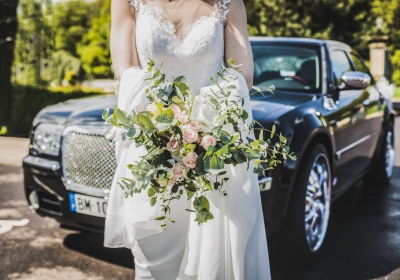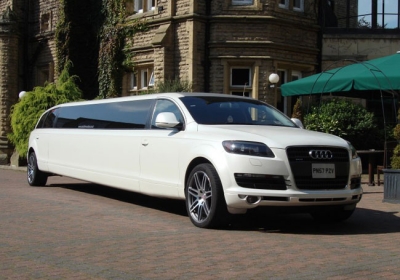There are two principal types of licence available to operate a limousine business in England and Wales (Scotland differs and is not covered here). In other words, a business where passengers are going to be carried on a ‘hire and reward‘ basis. Currently, if you only provide stretched limousines for weddings or funerals, you do not need to hold an operators licence. The Road Traffic Act 2006 introduced amendements that requires all limousine operators to be licensed from the 1st January 2008
The most popular form of licensing for limousine companies in a Private Hire Vehicle licence, these are issued by the local authorities and each will have its own intepretation of the rules. However, one thing that will be common to all of the local authorities is that the maximum number of passengers that can be carried is 8. This issue is currently under discussion with industry representatives and any changes would require an amendment to the relevant legislation. At the time of this post, the rules are clear, no more than 8 passengers.
Provided you meet all the criteria, a PHV licence should not be difficult to obtain, given all of the local authorities have received clarification on how they should intepret the existing and new legislation. In London, the Public Carriage Office is responsible for licensing on behalf of Transport for London, the rules are similar to those imposed by local authorities outside London, but the costs vary. It should be noted, for clarity, that you will require a PHV operators licence for the business and a PHV licence for each limousine or chauffeur driven car that you operate. All chauffeurs will have to be “badged”, in other words, they will have to be licensed to drive a private hire vehicle, whilst in London they will require a PCO Licence.
The alternative is a Bus Operators Licence, once again, you will need an Operators Licence for the business and a Public Service Vehicle Licence for each limousine. There are four types of Bus Operators Licences, which are described as follows:
- a Standard Licence – for national and international operations
- a Standard Licence – for national operations only
- a Restricted Licence – for small operations only
- a Special Licence – for holders of taxi licences only
Few, if any limousine businesses would be able to, or perhaps want to, commit to the financial and management resources required to comply with the regulations for a ‘Standard Licence’. Particularly in relation to ‘Professional Competence’. Therefore we will cover only 3 and 4. Further information of a Standard Licence can be found on The Transport Office website.
Restricted Licences are designed for small scale operations, given they restrict the operator to the use of just one or two vehicles. Neither of these vehicles can be constructed to carry more than 8 passengers. However, vehicles carrying up to 16 passengers may be used if;
- The vehicles are not used as part of a passenger transport business, for example they are used in connection with a hotel business.
- Your principal business or job is NOT the operation of Passenger Carrying vehicles capable of carrying more than 9 passengers. In other words, the operation of the PSV’s is incidental to your main business.
- Any vehicle offered for hire and reward, which is used to carry more than 8 passengers must have a ‘Certificate of Initial Fitness’.
Unlike a Standard Licence, you will not have to satisfy the Professional Competence requirement, but other than that, all other rules are the same. All chauffeurs will also be required to have an appropriate PCV licence to drive these vehicles.
A Special Licence (also known as an ‘PSV O Licence’) can be granted only to someone who already holds a taxi licence. Its only use is to let a licensed taxi operate a local service. Special conditions apply if you want to undertake a local service, for example; You must actually undertake to operate a local service and you must register the service, or in London, get a London local service licence or an agreement with London Transport Buses. All the vehicles used under the licence must be ones for which you hold taxi licences.
Local bus services (other than excursions and tours) are the only type of PSV operation you can undertake. You cannot run any other type of PSV service with your taxis (eg an express service with stopping places more than 15 miles apart). In addition, on any service you run, at least one stopping place must be in the area of the district council which issued your taxi licence, the other stopping places can be in any other district.
And perhaps most importantly, the vehicles must be licensed taxis for which you have proper licences., you cannot use private hire cars under a special licence. Unless you already own a taxi business, this type of Licence is not really appropriate for a limousine business. Similarly, Community Bus Permits and Minibus Permits are not suitable for a limousine business, including those who attempt to offer hire ans reward under the guise of self-drive hire, because these permits are designed for voluntary, non-profit organisations.
It is essential that you digest and understand fully the implications of using a Bus Operators Licence for your limousine business, given the restrictions and obligations are clear. Although not all limousine businesses adhere to the regulations, there is a good chance that from the 1st January 2008, the Traffic Commissioners will look more closely at limousine hire companies that are utilising a Bus Operators Licence for their business.
Cars for Stars is a licensed operator of chauffeur cars and limousines in the UK and also operates a franchised limousine hire business.
Disclaimer:
Any information contained herein is provided in good faith and based on research and public documents available at the time. However, it is entirely the responsibility of the reader (or any other party) to establish the veracity of any of the claims or information contained herein through their own independent sources, including, but not limited to, their own accountants, legal advisors and contacts with the relevant licensing, industry or government bodies. Cars for Stars Limited accept no responsibility or liability for any errors, omissions or exceptions.




